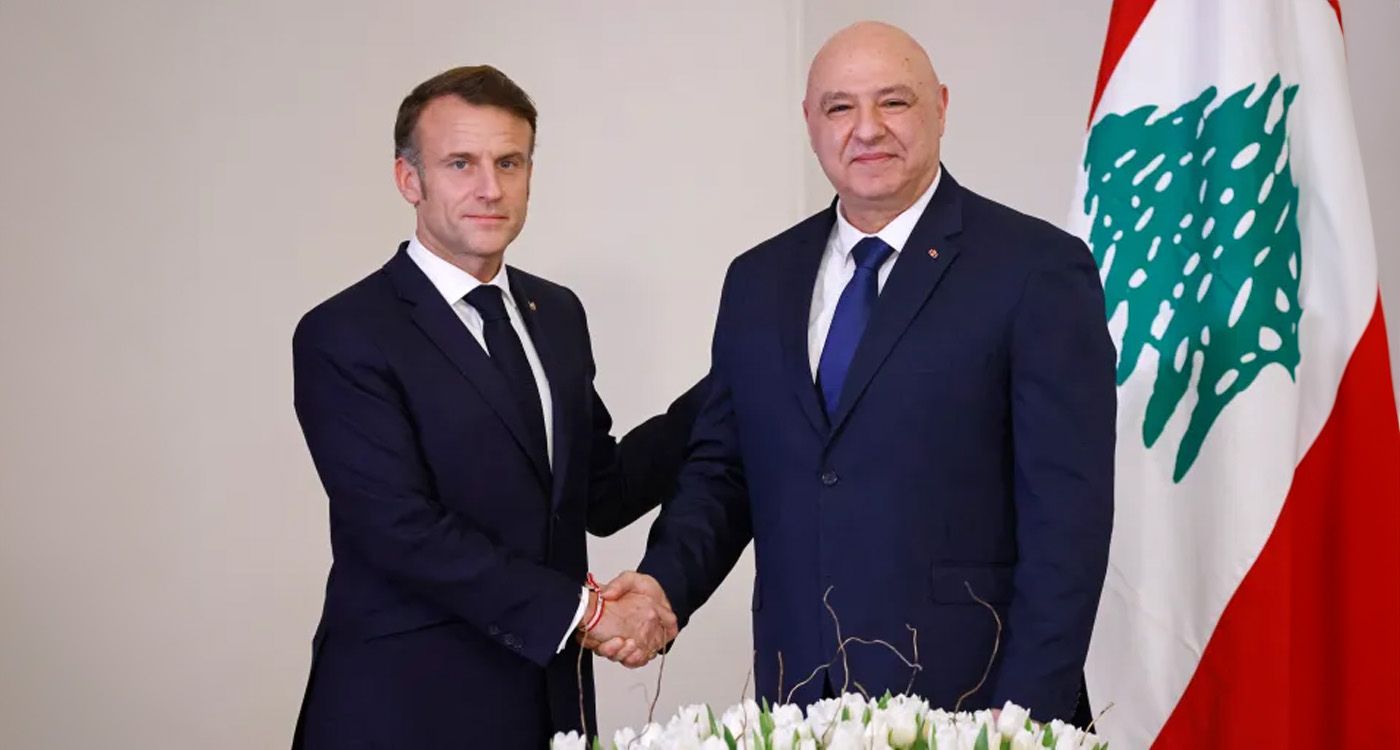
President Emmanuel Macron’s third visit to Lebanon since August 2020, dubbed “The Last Chance,” marks a turning point for the new president’s term. It came after repeated failures to resolve the crisis of electing a president. Macron visited Beirut shortly after General Joseph Aoun’s election as President and Nawaf Salam’s designation to form a government.
As a representative of the international-regional troika (the United States, France and Saudi Arabia) and the Paris Quintet (the US, France, Saudi Arabia, Egypt and Qatar), Macron’s mission was to reaffirm support for the process of change and guide the new phase outlined by President Aoun in his inaugural speech, emphasizing the shift in circumstances and the altered political landscape. Lebanon is now benefiting from unprecedented international backing to overcome its crisis, break free from the constraints of the Iranian-backed “resistance axis,” re-establish its ties with the Arab world, reclaim its independent role in international forums and end its subordination to the axis.
In his address to key figures and members of the diaspora at the embassy, Macron encapsulated the situation by stating, “The game is over,” signaling an era of irreversible change. In response, forces from the “moumana’a axis,” led by Iran, mobilized to confront what they saw as a coup that brought Aoun to the presidency and Salam to the Serail, after losing their role in determining the country’s leadership.
The Amal-Hezbollah duo made desperate attempts to halt the momentum for change and prevent the decline of their axis, resorting to various scenarios, leaks and accusations of betrayal. Hezbollah MP Mohammad Raad's remarks after the mandatory parliamentary consultations reflected the party’s disarray, accusing certain internal factions of orchestrating a plot to fragment, divide, eliminate and exclude them. Meanwhile, parliamentary sources close to Speaker Nabih Berri’s Amal Movement denied any breach of agreements, betrayal or conspiracy against the duo. Despite these clarifications, Hezbollah's circles continued to threaten street action in response to Salam’s nomination.
In the meantime, the “Troika” countries adopted the “carrot and stick” strategy to clear the hurdles impeding the government’s formation and to prevent any setbacks at the start of the new president’s term. This was evident during Macron's meeting with Speaker Berri, when he stressed the urgency of forming a genuine government, as he intends to convene an international conference for Lebanon in the very near future in Paris. Macron emphasized that a functioning government focused on reconstruction is crucial. In response, Berri remarked, “Hopefully, good things will come,” assuring that he would facilitate the government formation process.
“No one can bypass the president’s oath of office,” according to an MP who stressed that the old criteria for government formation are no longer relevant. He noted that the government formation must align with the changing political landscape. Even the ministerial statement will reflect the spirit of the presidential address, especially regarding the state's exclusive right to bear arms. Hezbollah, which has long operated outside the democratic system, boldened by its military arsenal, must now adapt to the system by respecting laws and institutions. There can be no imposition, domination, unilateralism or dictates. Hezbollah must recognize and align itself with the ongoing changes.
In this context, the sources close to Berri noted that the Amal-Hezbollah duo will participate in the government and is awaiting the proposed formula. Hezbollah's circles confirmed their commitment to participation on their own terms, while seeking to strengthen their negotiating position. The party cannot afford to be excluded from the government at this point, especially given its responsibility in implementing the 1701 Resolution, the ceasefire agreement and reconstruction efforts, among other tasks.
The new government faces crucial challenges, including the investigation into the Beirut port double-explosion as the most pressing, the full implementation of Resolution 1701, the ceasefire agreement, reconstruction efforts and the principle of exclusive state control over weapons. Additionally, a comprehensive defense policy must be developed as part of a broader national security strategy encompassing diplomatic, economic and military dimensions, empowering the state alone to end occupation and counter aggression, as outlined in the presidential oath.
The task ahead is monumental, and all stakeholders must prepare for the forthcoming parliamentary and municipal elections, which are expected to introduce new political figures.
Lebanon is on the path to salvation, marking the end of the nightmare of sectarian-driven projects and dominance, destructive strategies, foreign allegiances, reliance on artificial principles, false narratives and threatening rhetoric – all of which have now become irrelevant. The change is backed by international and Arab guarantees, and the visits by Western and Arab officials is a clear indication that the journey toward a new Lebanon has officially begun.




Comments